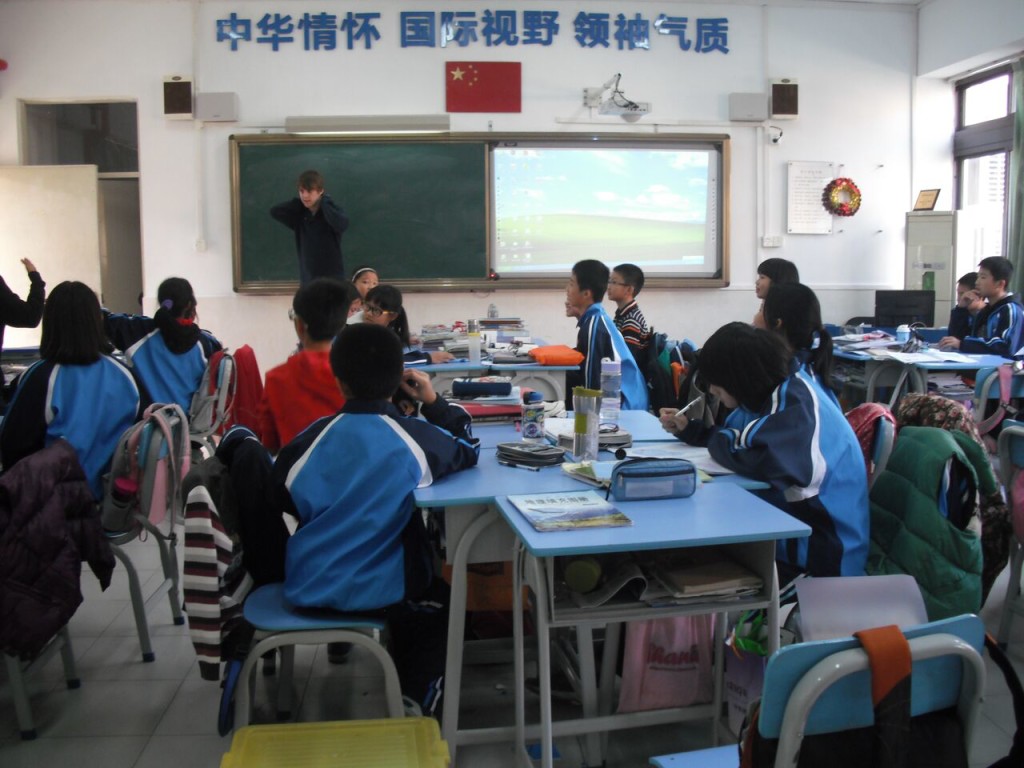Comparisons between British and Chinese Schools
I have worked in a number of UK state secondary schools, in Hampshire, Dorset and Surrey, and one of the things that never ceased to amaze me was that even with a national curriculum, and national standard inspecting body, the differences in teaching and standards of education varied massively depending on the school’s culture and the personalities of the teaching staff.
However, I recently conducted a teaching visit at a counterpart public Chinese Secondary school, or Experimental school, with Junior, Middle and Secondary sections) to observe lessons, as well as teach. It was interesting to compare the two facilities, systems, and teaching styles with my current school in Southampton (Hampshire), especially relevant as our curriculum takes on board some of the Asian-style schooling ideas currently, due to Michael Gove and Nicky Morgan’s international benchmarking of the UK system a few years ago.
The first difference in the Foshan Experimental School (Guangdong Province, China) was evident right outside the gates: the huge, intimidating gates patrolled by security in uniform. Rather than middle-aged “Mr Clark” shivering with a rain soaked coffee on gate duty as the children arrived, the school resembled a military facility, dictating entry and exit. Opinions on this checkpoint changed though, as with recognition of me being a Western presence I was ushered in and welcomed by the security and taken up to the offices of the foreign teachers, without any questions or ID needed to prove who I was. In comparison, schools in the UK are known amongst stakeholders for having fierce “gatekeepers”, receptionists who know everything that is happening in their school, everyone who is inside their school, and even have the head teacher’s schedule committed to memory it seems. And if you haven’t made an appointment, you can forget about it.

Secondly, the size of the school differs greatly. More like a university campus with separate buildings, some residential accommodation and sleeping rooms, this is what you can expect from a country with a population 23 times the size of the UK. I walked past endless classrooms, offices, and dining areas to get to the classrooms, and so it is no wonder students are given 5 minutes walking time to get between each lesson. I work in a very large UK secondary school, with over 2000 students spread across four buildings, but this is dwarfed in comparison to its Chinese counterpart with over 5000 students. Due to the sub-tropical climate of South China, the students learn from about 10am to 7pm, sleeping in a break in the middle part of the day. In comparison to the usual 7.30am-4pm day I am used to, I struggled to sleep on the small camp bed that was to my surprise set up for me nearby the head teacher’s office!
The learning was as expected, by wrote, and involved a lot of repetition by speech, and written repetition working out of textbooks. I was struck how the national red flag was displayed prominently at the front of each classroom, and the presentation area was raised like a stage. As I went on to observe lessons, the curriculum seemed a lot more directly influenced by the politics of the country, and the learning left little room for questions and class discussion. Though teachers in England complain about the meddling from politicians in our teaching curriculums, the relative freedom to plan our own lessons, include a variety of styles of activity, and follow questions into class discussions perhaps off at a tangent from the planned lesson, is a major difference. The classrooms included contemporary facilities like projectors, and interestingly there were the common behavioural problems in terms of low level disruption and occasional attempts to distract the teacher and other students. It seems wherever you go in the world, children are children!
Finally, school dinners. Everyone was fed in a variety of canteens, both at lunchtime and dinner time. Rather than huddling in the staff room then in our tribal department gatherings, teachers and students quite pleasantly mixed together and ate in a very pleasant social atmosphere, united by some very well prepared and lavish food from a canteen that offered a lot of choice. However as a visitor, I was quite honoured to be invited to the head teacher’s office for some private dining! Whilst eating, drinking, and refusing the occasional glass of Baijiu (Chinese rice “wine”) I nodded and raised my eyebrows knowingly at his animated discussion, though the lack of a translator meant I couldn’t understand a word he was saying. I couldn’t help feel privileged though, as I know in the UK our senior teacher’s time is in so much demand.
Whilst only a brief summary of my visit, I hope that this article leaves you wanting to find out more about how China educates its vast population…
Jake Collings
Teacher of English and Maths